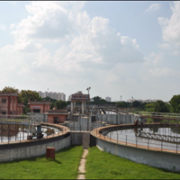Archive | Capacity development RSS feed for this section
Capacity development, Governance and public sector management, Health, Social development and protection
 Capacity development, Health, Industry and trade
Capacity development, Health, Industry and trade
 Capacity development, Governance and public sector management, Health
Capacity development, Governance and public sector management, Health
 Capacity development, Health, Social development and protection, Urban development, Water
Capacity development, Health, Social development and protection, Urban development, Water
 Agriculture and natural resources, Capacity development, Environment, Governance and public sector management, Health, Water
Agriculture and natural resources, Capacity development, Environment, Governance and public sector management, Health, Water
 Capacity development, Education, Information and Communications Technology, Social development and protection
Capacity development, Education, Information and Communications Technology, Social development and protection

Crisis X: Is Asia ready to face the next pandemic?

COVID-19 has highlighted the importance of collaboration among governments and stakeholders to better prepare for the next unknown crisis.
Fashion industry SMEs look to new strategies to overcome pandemic impacts

The fashion industry employs millions worldwide, but its SMEs have faced unprecedented challenges and a widening digitalization gap during the pandemic.
Call in the social science cavalry for post-pandemic recovery

Asian governments and social scientists need to work together to respond to the pandemic and its aftermath.
Making citywide inclusive sanitation a reality through capacity development
By Abishek Narayan, Christoph Luthi, Ma. Laarni Revilla, Deepanshu Agarwal and KE Seetha Ram. Posted January 18, 2021

Over a billion people across Asia and the Pacific still lack access to basic sanitation services (JMP 2019). Most low- and middle-income countries in Central Asia, South Asia, and East Asia still do not have safely managed sanitation services. Further, only a fifth of the countries practicing open defecation are on track to eliminate this practice around the world. Clearly, business as usual in the sanitation sector has not solved this challenge in the last several decades.
Do the socioeconomic spillovers from sewage treatment plants in developing countries justify heavy investment in them?

Decent sanitation for all is crucial for rapidly urbanizing developing countries, such as India. As large volumes of wastewater in developing countries remain untreated, the investments in treatment facilities have not kept pace with the steady increases in population and urbanization and the resulting increases in wastewater volumes.
T20 and realizing education for all in the Digital Age

Education is a key driver for sustainable development (UNESCO 2018). However, the goal of realizing education for all in the Digital Age faces two major challenges. First, many countries and economies are still not ensuring quality education for all. Millions of children and youth still lack the necessary tools to realize their potential amid economic, political, and social strife. Second, with the emergence of the fourth Industrial Revolution and the growing use of automation, big data, and artificial intelligence, human labor is being substituted increasingly by machines or algorithms.


Search
Subscribe / Connect to Asia Pathways
Subjects
- Agriculture and natural resources
- Blog
- Capacity development
- Climate change
- Economics
- Education
- Energy
- Environment
- Finance sector development
- Gender
- Governance and public sector management
- Health
- Industry and trade
- Information and Communications Technology
- Infrastructure
- Miscellaneous
- Population
- Poverty
- Private sector development
- Regional cooperation and integration
- Sanitation
- Social development and protection
- Transport
- Uncategorized
- Urban development
- Video Blog
- Water
Recent Posts
- Unraveling the Health Risks of Climate Change
- Linking Farmers to Markets Through Agricultural Cooperatives and E-Commerce in Asia
- How Can Governments Support Electricity Distribution to Achieve Net Zero in Asia?
- Promoting Corporate Climate Action Through Greenhouse Gas Accounting
- Evaluating G7 Commitments on Climate Change, Health, Well-Being, and Agriculture




Recent Comments